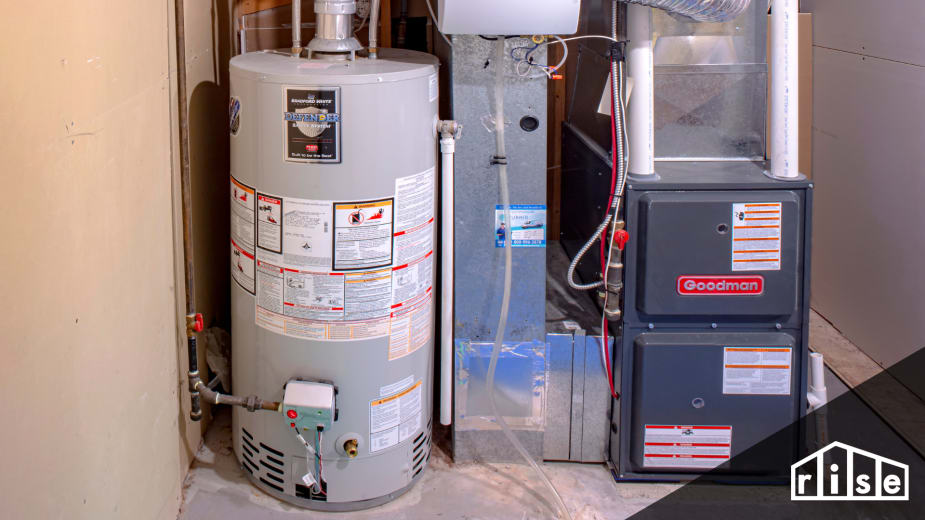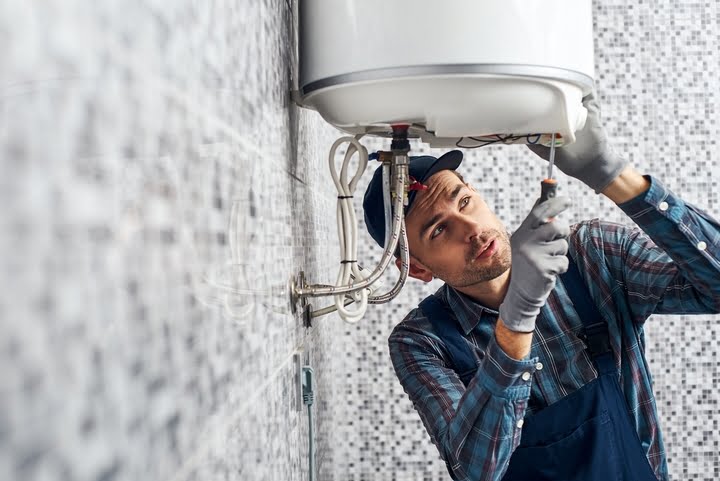Essential Protocols for House Owners Dealing with Problems with Malfunctioning Hot Water Systems
Essential Protocols for House Owners Dealing with Problems with Malfunctioning Hot Water Systems
Blog Article
Just how do you feel about What Do You Do When Your Water Heater Bursts??

Whether it is situated in the basement or a separate room, broken water heaters can cause tension. Having no hot water supply is also problematic.
Call the Plumber
After doing the very first two safety actions, you must call your plumber to come as soon as possible to repair a ruptured water heater. Remember that your system will not simply conk out dramatically overnight. There are generally indications that your aging water heater has debris buildup in the inside. Remember of the following:
Don't await significant flooding to call the plumber. By then, you will need to invest even more to recover your residential property. Instead, as soon as you spot these indications, have actually a specialist concerned examine your hot water heater storage tank. Normally, hot water heater have a life expectancy of concerning 8 to 12 years. With routine examination as well as upkeep, you can lengthen its life.
Cut Off the Cold Water Supply
Cut off the containers touch water supply from the resource. When your storage tank is in great condition, the cold water stops filling up when the container is full. If you can not find it or reach it, you need to transform off that major water supply line outside your building.
Shut Down Power Source
Before calling the plumber, shut off a gas water heating system by transforming the temperature dial. This will stop electrocution, particularly if there is a leakage as water is a conductor. Typically, the heating aspect closes off when the water hits a particular temperature level.
Tidy up Residential property
After calling the plumber, paper damage by remembering as well as pictures so you can declare your property owner's insurance. From there, begin the prompt cleaning. Obtain any vital possessions to prevent more soaking. Eliminate any type of standing water to prevent mold and mildew and mold growth. If you have a submersible water pump, use that to drain pipes the water. Or else, the conventional pail method will certainly also function. Attempt to wipe out everything, including walls as well as baseboards. If you have an electric follower and dehumidifier, keep them running to keep air circulating. This will assist hinder mold growth.
Keep in mind, if you discover any kind of concerns with your water heater, call the pros right away. You can not take this problem lightly due to the fact that a malfunctioning thermostat can raise water temperature to a hazardously high level, leading to unintentional burns.
After doing the first 2 safety actions, you should call your plumber to come right away to fix a fractured water heating unit. Instead, as quickly as you identify these signs, have a specialist come to evaluate your water heater storage tank. Before calling the plumber, shut off a gas water heating unit by transforming the temperature level dial. If you have a submersible water pump, make use of that to drain the water. Bear in mind, if you observe any type of issues with your water heating system, call the pros right away.
Is My Water Heater Broken?
The Water Heater is Old
No appliance will last forever. This includes a home’s water heater. During its lifespan, residents are going to face a situation where a new water heater installation will be necessary. The biggest problem with this is that most people are not sure when their water heater expires. Not knowing this can lead to serious risks if the unit begins to act up due to old age.
Most makes and models of water heaters will last between eight and 10 years. While 10 years is the age when water heater replacement is highly recommended, the need to replace the unit may occur before this time or after. If the unit doesn’t show any symptoms of a problem, it is a good idea to replace it at the 10-year mark (from the manufacture date).
Some of the symptoms that indicate a new unit is needed include rusting, leaks, noises, and a failure to heat up the water. Also, note that not all units have a 10-year life expectancy. The main exception to this rule is that a gas unit will last for six to eight years.
Rusty Heater Inlet Valve or Water
While steel is the strongest material on earth, it does have a weakness – rust. If corrosion occurs on a steel surface, it will begin to spread and eat through the steel in certain areas. On water tanks and pipes that are made of steel, rust is a warning sign of an impending leak.
The issue for many is trying to figure out if the rust is coming from the water heater or the pipes that lead to the faucet. If rust is seen, it is a clear indication that water heater service from the professionals is needed.
If rusty water appears out of the faucets in the bathtub or sink, it likely means a rusty water heater. If there is rust near the water inlet or the pressure relief valve, rust has likely developed inside the tank. If tap water appears rusty, it may be an issue with the pipes.
Strange Sounds from the Water Heater
Are there strange sounds coming from the tank? As a water heater gets older, rumbling noises may develop and get louder and louder as the water in the tank heats up. In homes where large amounts of hot water are used, the issue is likely going to be even more obvious when more serious issues arise. If there is a strange or loud noise coming from the unit, it is probably because of sediment buildup. A good way to remedy this problem is by flushing the heater. If this does not work, then a new unit may need to be installed.
Leaks
As a water heater gets closer to the end of its useful life, there is a higher chance there will be water around the tank. If there is water, this usually means leaks are occurring. Based on where the unit is located in the home, a leak may result in serious property damage.
Leaks are usually caused by expansions in the metal tank. The expansions occur as time passes and as the inside body of the tank is exposed to multiple heating cycles per day. When a fracture forms, the gap will be slight enough to hold the water in; however, in more serious situations, this will not be the case. If the tank is idle, the water will not leak but when the metal expands during each heating system, small amounts of water will get through the gap.

I discovered that blog posting on Water Heater Burst while surfing around the internet. Do you know anybody else who is curious about Broken Water Heaters? Why not promote it. Thank you for going through it.
Protect your space! Report this page